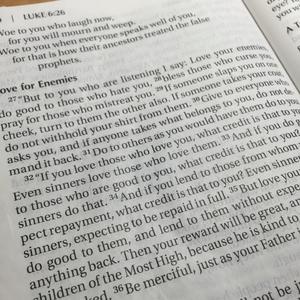“Praise the LORD, all you servants of the LORD who minister by night in the house of the LORD.” (Psalms 134:1 NIV)
Celebration
We have reached the final Psalm of Ascent. We began in far-distant Kedar (Psalm 120:5) and we are ending in the temple where we bless God and He blesses us. There can be a sense of anti-climax at the end of something, but not in this case. We are invited to join in the celebration and put aside whatever has been going on during the journey.
‘Praise’ can also mean ‘bless’ (the Hebrew word is ‘berakah’), both here and in verses 2 & 3. This is what God does to us and around us in our community of faith. Not only does He welcome us into covenant with Him, but He also shares His own life with us, and we get to participate in all the joys of His Spirit. The creation that belongs to Him is shared with us, and, to cap it all, the most special joy of redemption is ours too. If that is not blessing that is worth singing about I don’t know what would be. And this joy is worth sharing with others. A joy un-shared is a joy only half enjoyed.
Night
What is going on here at night? It might be that the priests and levites are on night–duty in the temple/tabernacle. Alternatively it could be a group of pilgrims having a time of devotion during the night, or maybe keeping the Passover night festival,
“Because the LORD kept vigil that night to bring them out of Egypt, on this night all the Israelites are to keep vigil to honour the LORD for the generations to come.” (Exodus 12:42 NIV)
In 1 Chronicles the Levitical singers are on duty day & night,
“Those who were musicians, heads of Levite families, stayed in the rooms of the temple and were exempt from other duties because they were responsible for the work day and night.” (1 Chronicles 9:33 NIV)
Moses summed up the role of this tribe in Deuteronomy,
“At that time the LORD set apart the tribe of Levi to carry the ark of the covenant of the LORD, to stand before the LORD to minister and to pronounce blessings in his name, as they still do today.” (Deuteronomy 10:8 NIV)
Once the temple had been built they had updated duties, but worship was still the primary thing,
“They were also to stand every morning to thank and praise the LORD. They were to do the same in the evening” 1 Chronicles 23:30
Stand
The word ‘minister’ literally means ‘stand’, ‘accepted’, ‘secure’. This might not be about performing a ritual but to the fact that some priests’ job was to guard the temple at night. The temple was guarded 24/7 to make sure that it’s holiness was not compromised and so that nothing was stolen. This might seem very ‘ordinary’, but even this was seen as worship. Even our most ‘ordinary’ acts are worshipful if done with the right attitude.
Praise and blessing are the theme of this Psalm. It is as if the pilgrims are overwhelmed by the very real presence of God as they finally arrive at their destination. May this be our experience as we approach Him in humility and gratitude.

